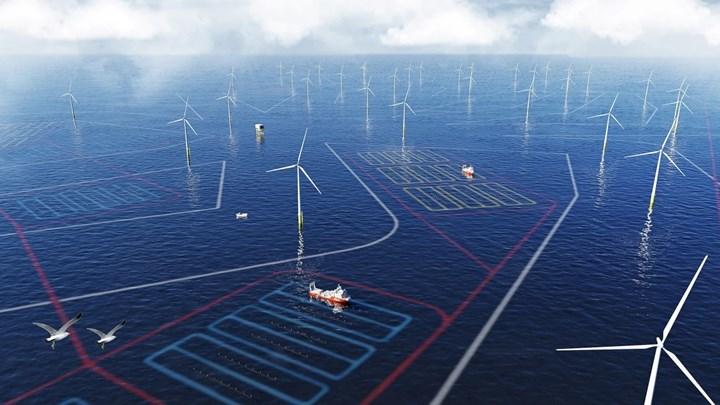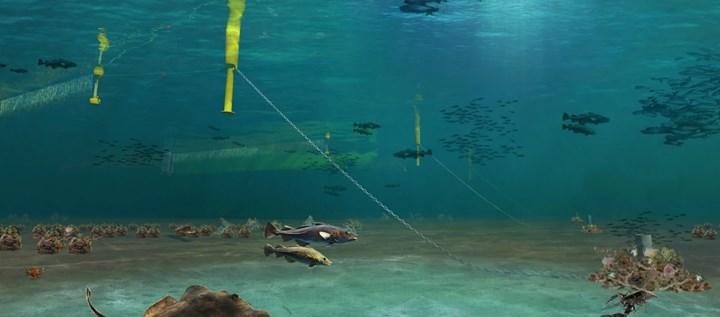 Amazon recently announced that it will finance the world’s first commercial-scale seaweed farm among offshore wind turbines. Amazon aims to enable thriving offshore wind farms to not only use energy but also directly combat climate change.
Amazon recently announced that it will finance the world’s first commercial-scale seaweed farm among offshore wind turbines. Amazon aims to enable thriving offshore wind farms to not only use energy but also directly combat climate change.Algae to be grown in offshore wind farm
The North Sea Farm 1 project off the Dutch coast will consist of a 10-hectare (25-acre) seaweed farm expected to produce at least 6,000kg of fresh seaweed in its first year. The project is expected to be operational by the end of the year and the first seaweed harvest will take place in the spring of 2024. It is hoped that the project will evolve into a seaweed farming scheme that can be expanded globally.
 If seaweed cultivation expands to cover the entire area occupied by wind farms, which is expected to be around 1 million hectares by 2040, it could absorb millions of tons of carbon dioxide per year. Amazon is donating 1.5 million euros to establish this first-of-its-kind seaweed farm and to conduct scientific research into carbon reduction through seaweed farming. This donation from Amazon will go to the nonprofit The North Sea Farmers.
If seaweed cultivation expands to cover the entire area occupied by wind farms, which is expected to be around 1 million hectares by 2040, it could absorb millions of tons of carbon dioxide per year. Amazon is donating 1.5 million euros to establish this first-of-its-kind seaweed farm and to conduct scientific research into carbon reduction through seaweed farming. This donation from Amazon will go to the nonprofit The North Sea Farmers.Seaweed could be key to tackling climate change
Seaweed can essentially be described as a rapidly growing algae. These algae grow on the energy they get from the sun and the nutrients and carbon dioxide they get from the sea. Because seaweed can absorb much more CO2 than plants on land, it can be effective in tackling climate change and reducing carbon emissions.
In addition to this benefit, they also constitute an important habitat area for the marine ecosystem. Because fish, crabs and shellfish can use algae as both food and habitat. However, seaweeds are also a food source for humans. It is even believed that seaweeds could play a role in the production of vegetable fuels (biofuels) of the future.